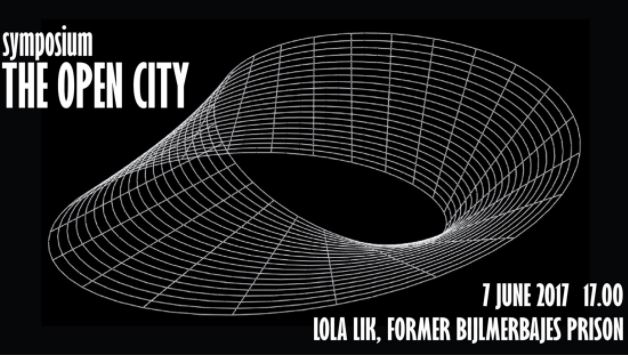The Open City

The Open City is a symposium and publication series organised by the students of the Research Master's in Urban Studies at the University of Amsterdam.
The Open City is presented in cooperation with the Centre for Urban Studies, The Proto City and Lola Lik.
Home About The Open City
About The Open City
From the point of view of a passer-by, strolling along quiet streets of aligned canal houses in Amsterdam feels like the Dutch city in its whole is the result of focused efforts of city planners and the local government. These actors have created an order in the city that is rightfully respected;
Trains and trams arrive on time, canal boats wait for bridges to open before going on, areas of the city are redesigned and developed. However, a closer view to the structure of the city shows that it is influenced by many different stakeholders. Increasingly other individuals, groups and organisations start to take on governing roles.
This is for instance the case when parents of primary school children lobby on the local government to change the traffic regulations in their area. Or when inhabitants of a neighbourhood take the initiative to green it up, or renovate it. When a private firm provides citizens with amenities their neighbourhood was lacking. When individuals take to the street and oppose a major-scale construction project. Hierarchical, top-down modes of government are thus replaced by more horizontally organized or bottom-up governance initiatives. Various concepts have been used to describe such new modes of governance, including self-organisation, co-creation, or even: “the open city”.
This leads to the central question during the 2017 RMUS-symposium: who has the right to govern the city?
Second-year students from the research master’s programme urban studies at the University of Amsterdam have gathered to tell stories of governance, initiatives and to challenge stereotypes about the way cities develop, change and adapt. This takes the form of a symposium called the Open City.
Within this symposium is an organised lecture that will happen on June 7th in Lola Lik, a documentary created by the students as well as a blog post series published in the Proto City, all addressing the topic of city governance and the diversity of initiatives aiming to shape the urban structures and perceptions.
Categories
- Build & Destroy (77)
- Comparative Urbanism (12)
- Consuming the City (11)
- Discover (16)
- Earn & Spend (32)
- Food and the City (9)
- Live & Die (69)
- Move & Stay (21)
- Suicide Cycling (21)
- The Open City (5)
- Who Makes the City? (13)
-
Recent Posts
- Mexico City and Washington DC – two capitals in comparison
- Global processes through a local lens, comparing urban inequality in Toronto and Bangkok.
- Chicago and Kuala Lumpur: Through the Lens of Comparative Urbanism
- Copenhagen and Montevideo: bonded by progression
- At what costs? (Un)controlled urban expansions and socio-ethnic segregation in Luanda and Paris.
Recent Comments
© 2012 - 2019 The Protocity.com. All rights reserved.
Back to top
